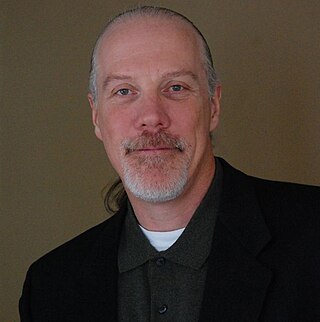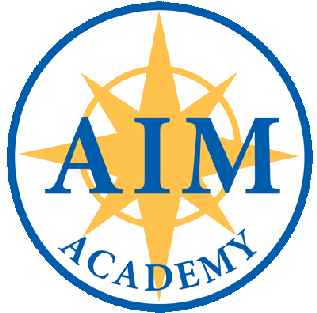Related Research Articles
Edutopia is a website published by the George Lucas Educational Foundation (GLEF). Founded in 1991 by filmmaker George Lucas and venture capitalist Steve Arnold, the foundation "celebrates and encourages innovation" in K–12 schools.

Computer literacy is defined as the knowledge and ability to use computers and related technology efficiently, with skill levels ranging from elementary use to computer programming and advanced problem solving. Computer literacy can also refer to the comfort level someone has with using computer programs and applications. Another valuable component is understanding how computers work and operate. An individual's level of computer literacy is measured on the scale of how skilled they are when it comes to using computers and other related tools to achieve a goal. Computer literacy may be distinguished from computer programming, which primarily focuses on the design and coding of computer programs rather than the familiarity and skill in their use. Various countries, including the United Kingdom and the United States, have created initiatives to improve national computer literacy rates.
Educational technology is the combined use of computer hardware, software, and educational theory and practice to facilitate learning. When referred to with its abbreviation, edtech, it often refers to the industry of companies that create educational technology.
Editing technology is the use of technology tools in general content areas in education in order to allow students to apply computer and technology skills to learning and problem-solving. Generally speaking, the curriculum drives the use of technology and not vice versa. Technology integration is defined as the use of technology to enhance and support the educational environment. Technology integration in the classroom can also support classroom instruction by creating opportunities for students to complete assignments on the computer rather than with normal pencil and paper. In a larger sense, technology integration can also refer to the use of an integration platform and application programming interface (API) in the management of a school, to integrate disparate SaaS applications, databases, and programs used by an educational institution so that their data can be shared in real-time across all systems on campus, thus supporting students' education by improving data quality and access for faculty and staff.
"Curriculum integration with the use of technology involves the infusion of technology as a tool to enhance the learning in a content area or multidisciplinary setting... Effective integration of technology is achieved when students are able to select technology tools to help them obtain information in a timely manner, analyze and synthesize the information, and present it professionally to an authentic audience. The technology should become an integral part of how the classroom functions—as accessible as all other classroom tools. The focus in each lesson or unit is the curriculum outcome, not the technology."

Idit R. Harel is an Israeli-American entrepreneur and CEO of Globaloria. She is a learning sciences researcher and pioneer of Constructionist learning-based EdTech interventions.

Science, technology, engineering, and mathematics (STEM) is an umbrella term used to group together the distinct but related technical disciplines of science, technology, engineering, and mathematics. The term is typically used in the context of education policy or curriculum choices in schools. It has implications for workforce development, national security concerns and immigration policy, with regard to admitting foreign students and tech workers.
Digital literacy is an individual's ability to find, evaluate, and communicate information by utilizing typing or digital media platforms. It is a combination of both technical and cognitive abilities in using information and communication technologies to create, evaluate, and share information.

Will Richardson is an author and speaker on educational technology. He has many published works, including the book, Blogs, Wikis, Podcasts, and other Powerful Web Tools for Classrooms, and the edublog Weblogg-ed which he wrote from 2001 to 2011. Richardson is also active on the web; he has both a Twitter account and YouTube channel.
Youth and Educators Succeeding, formerly known as Generation YES, was a U.S. based non-profit organization that works with schools around the world to empower underserved students and ensure that technology investments in education are both cost effective and meaningful. Dr. Dennis Harper was the founder and CEO from 1996 to 2020; upon his retirement, Adam F.C. Fletcher succeeded him. YES programs focused on student centered, project-based learning "experiences that impact student's lives and increase student involvement in school and community through the use of technology." In addition, research showed "all YES programs improved the use of technology in the school as a whole."

Information and media literacy (IML) enables people to show and make informed judgments as users of information and media, as well as to become skillful creators and producers of information and media messages in their own right. Renee Hobbs suggests that “few people verify the information they find online ― both adults and children tend to uncritically trust information they find, from whatever source.” People need to gauge the credibility of information and can do so by answering three questions:
- Who is the author?
- What is the purpose of this message?
- How was this message constructed?
Students in computer lab

Education in Liberia was severely affected by the First Liberian Civil War and Second Liberian Civil War, between 1989 and 2003. In 2010, the literacy rate of Liberia was estimated at 60.8%.

The University of Florida College of Education is the teacher's college, or normal school, of the University of Florida. The College of Education is located on the eastern portion of the university's Gainesville, Florida, campus in Norman Hall, and offers specializations in special education, higher education, educational policy, elementary education, counseling, teaching, and other educational programs. It is consistently ranked one of the top schools of education in the nation. The college was officially founded in 1906. In fiscal year 2020, the College of Education generated $102.8 million in research funding.

The Maine Learning Technology Initiative (MLTI) is an initiative that gives learning technology to all of the 7th-12th graders attending public schools in Maine, Hawaii, and Vermont. Currently, it hands out a school's choice between either iPads, MacBook Airs, Hewlett-Packard ElitePads, Hewlett-Packard ProBooks, and CTL Classmate PC Netbooks to students. Before that, it gave iBooks and later MacBooks to students. When it began in Maine in 2002, it was one of the first such initiatives anywhere in the world and first in the United States to equip all students with a laptop.
High Tech High is a San Diego, California-based school-development organization that includes a network of charter schools, a teacher certification program, and a graduate school of education. Students are admitted to the public elementary, middle, and high schools through a zip-code based lottery system in an effort to admit a demographically diverse representative sample of San Diego County.

ABCmouse.com Early Learning Academy is a subscription-based digital education program for children from ages 2-8, created by Age of Learning, Inc. Subscribers can access learning activities on the ABCmouse.com website or mobile app. Subjects covered include reading and language arts, math, science, health, social studies, music, and art.

AIM Academy is an independent co-educational college prep school serving students with language-based learning differences in grades 1-12. AIM was founded in 2006 and moved to its current location in Conshohocken, Pennsylvania in 2012. The AIM Institute for Learning & Research provides professional learning opportunities grounded in the Science of Reading including online teacher training courses and access to researchers.

David Warlick is an educator, author, programmer, and public speaker. An early adopter and promoter of technology in the classroom, Warlick has taught and written about technology integration and school curriculum for more than 30 years. He has also developed instructional software and interactive Web sites to support teachers and students in using computers and the Internet for education.
Technology Education and Literacy in Schools (TEALS) is a program that pairs high schools with software engineers who serve as part-time computer science teachers.

MayaQuest: The Mystery Trail is an educational computer game created by MECC and inspired by the actual MayaQuest Expedition. It is a spin-off title of The Oregon Trail series, featuring the lands of Mexico where the Mayan People once lived. While travelling across the lands by bicycle, the player learns all about the ancient culture and history of the indigenous people. The game also contains some Spanish language for additional learning.
Marina Umaschi Bers is the Augustus Long Professor of Education at Boston College. Bers holds a secondary appointment in Boston College's Department of Computer Science. Bers directs the interdisciplinary DevTech Research Group, which she started in 2001 at Tufts University. Her research involves the design and study of innovative learning technologies to promote children’s positive development. She is known for her work in the field of early childhood computer science with projects of national and international visibility. Bers is the co-creator of the free ScratchJr programming language, used by 35 million children, and the creator of the KIBO robotic kit, which has no screens or keyboards.
References
- ↑ Tech & Learning published (2010-01-29). "Dennis Harper". TechLearningMagazine. Retrieved 2023-06-05.
- 1 2 "Students as Change Agents: Kids Help Integrate Tech Into the Classroom". Edutopia. Retrieved 2023-06-05.
- ↑ "Technology Literacy as a Catalyst for Systemic Change, by Dennis O. Harper & Rebecca F. Kemper", . Dennis Harper & Rebecca F. Kemper. Technological Horizons in Education Journal Retrieved 9/20/21.
- ↑ Harper, Dennis (August 2003), "Students as change agents: the generation y model", Technology-Rich Learning Environments, WORLD SCIENTIFIC, pp. 307–329, doi:10.1142/9789812564412_0014, ISBN 978-981-238-435-5 , retrieved 2023-06-05
- ↑ Burgos, M. "Interview with the Director of Generation www.Y". SCR*TEC. Retrieved 7/22/08.
- ↑ "Technology Innovation Challenge Grant Program". www2.ed.gov. 2014-06-16. Retrieved 2023-06-05.
- ↑ "Generation YES » Generation YES History & Philosophy". 2007-03-18. Archived from the original on 2007-03-18. Retrieved 2023-06-05.
- ↑ U.S. Department of Education Office of Educational Technology (2010). Transforming American Education Learning Powered By Technology. U.S. Department of Education. p. 60.
- ↑ "A Generation YES for One Laptop Per Child". OLPC News. Retrieved 2023-06-05.
- ↑ "Dennis Harper: An Expert View on Teacher Preparation". Edutopia. Retrieved 2023-06-05.
- ↑ "Generation YES Launches New Student Technology Literacy Certification". THE Journal. 2004-08-01. Retrieved 2023-06-05.
- ↑ "GenYES" . Retrieved 2023-06-10.
- ↑ Tech & Learning published (2010-01-29). "Dennis Harper". TechLearningMagazine. Retrieved 2023-06-05.
- ↑ (2007) "GenYES founder calls for student tech input: a prominent industry voice says kids should play a role in the development and execution of technology plans." T H E Journal (Technological Horizons In Education).
- ↑ Armstrong, S. (2001) "Turning the Tables: Students Teach Teachers", Edutopia. Retrieved 7/22/08.
- ↑ "Logo Foundation Publications | Logo Update". el.media.mit.edu. Retrieved 2023-06-05.
- ↑ "Sirleaf Breaks Ground for Liberian Renaissance Education Complex". www.emansion.gov.lr. Retrieved 2023-06-05.
- ↑ "People – HIAU | Harvest Intercontinental American University". hiauniversity.org. Retrieved 2023-06-05.
- ↑ "Our School Liberia". Our School Liberia. Retrieved 2023-06-10.
- ↑ Harper, D & Stewart, J. (1986) RUN: Computer Education. ISBN 0-534-01265-5
- ↑ Harper, Dennis; Stewart, James (1986). Run: Computer Education (2nd ed.). Brooks/Cole Pub. Co. ISBN 978-0534054069.
- ↑ Harper, Dennis (2018). Principal's Guide to Student Technology Leadership. Cisco. ISBN 978-1986132640.
- ↑ Harper, Dennis (1989). Logo: Theory and Practice. Brooks/Cole Pub Co. ISBN 978-0534097202.
- ↑ (2007) GenYES Founder Calls For Student Tech Input. T.H.E. Journal January.